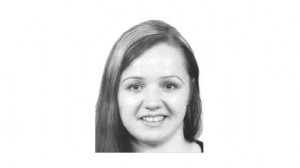KAUNAS, Lithuania — Edita Lardongaitė, 26 of Kaunas, was arrested Wednesday morning for the murder of her 2-week-old daughter, whose body was found in a landfill Friday morning.
Police announced that Lardongaitė was the primary suspect Monday and issued a warrant for her arrest. Lardongaitė had last been seen on Jan. 13 until she was discovered by police hiding with friends in the village of Kaniūkai near Kaunas Wednesday.
Prosecutors allege that Lardongaitė murdered her young daughter and left her body, sealed inside a blue infant carrier backpack, in the garbage dump.
Forensic experts determined that the infant was dead before being placed in the landfill, possibly killed by asphyxiation as no signs of violence were on her body.
Lardongaitė remains in custody and if found guilty could face 5 years to life imprisonment.














isn’t it part of journalistic ethics not to publish fotos of accused before they are found guilty? In case she would be set free (declared not guilty) everyone will only see her as what seh was accused of.
Dear European,
Thanks for your use of our website as a news source and for your frequent posts.
In answer to your question — no.
It’s the norm in Western journalism to publish photographs of people accused of crimes. It bears no reflection on their guilt, as is clearly indicated by the word “accused.”
As the crime is already on the public record, as is customary in the legal systems of EU member states, the person has already been publicly identified as being accused of a crime, so not publishing the photo will hardly keep the person’s identity secret.
Also it helps distinguish who is accused from who isn’t, as someone else may have the name Edita Lardongaitė.
In this particular case Baltic Reports was hardly unique in publishing the photo — nearly every Lithuanian media outlet did as well. The Kaunas police department released the photo to the press after posting it on their website.
Regards,
Nathan Greenhalgh
Editor
Baltic Reports
Nathan – it’s quite patronising to refer to your journalistic style and ethos as “Western” as though that somehow makes it better and more valid than ours.
Dear Jolanta,
I’ll assume by “ours” you mean Lithuanian journalism. In my previous statement I wasn’t differentiating between Lithuanian journalism and any other.
I said “the norm in Western journalism to publish photographs of people accused of crimes” and “Baltic Reports was hardly unique in publishing the photo — nearly every Lithuanian media outlet did as well.” Notice a parallel there?
Lithuanian journalism is Western journalism. I define “Western journalism” as that practiced in a society with freedom of speech. Certainly the media in Lithuania qualifies as such. Non-Western media would be, for example, the Belarusian media or Chinese media.
Regards,
Nathan Greenhalgh
Editor
Baltic Reports